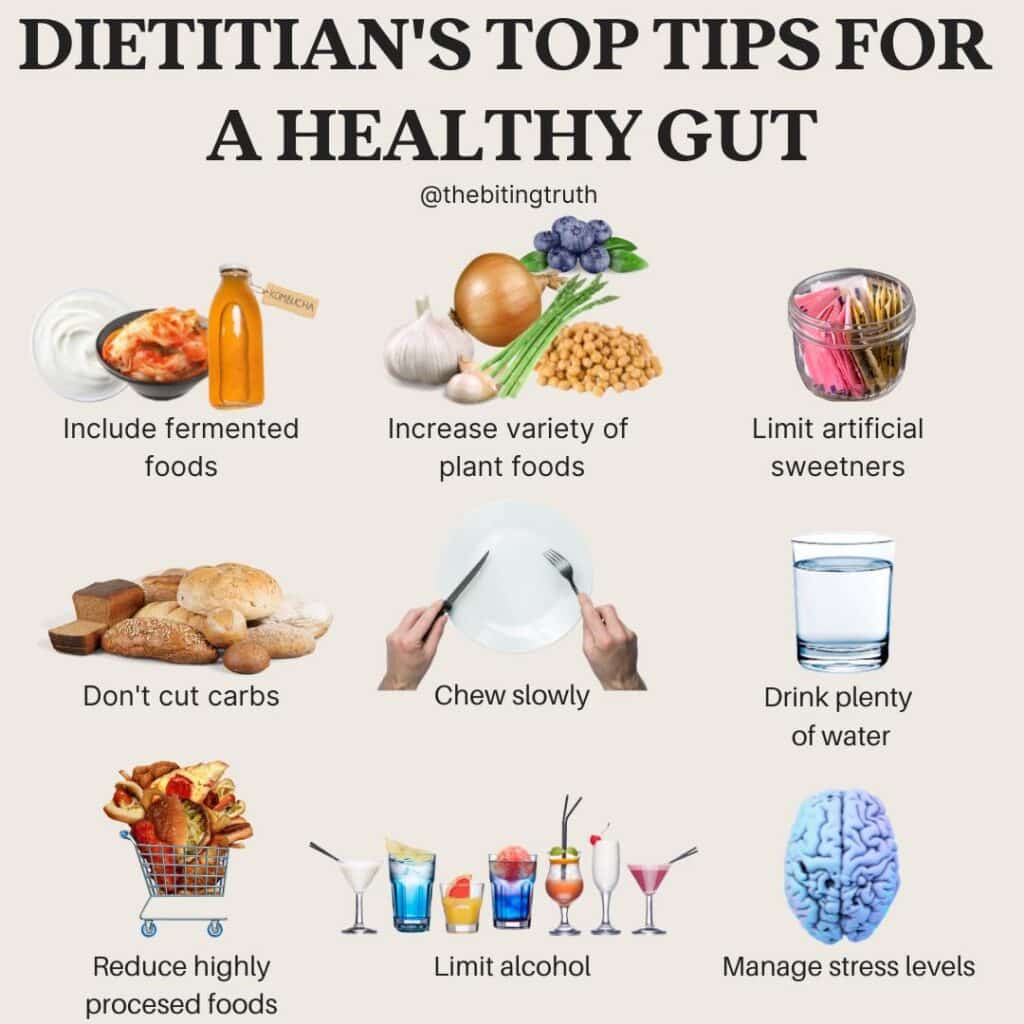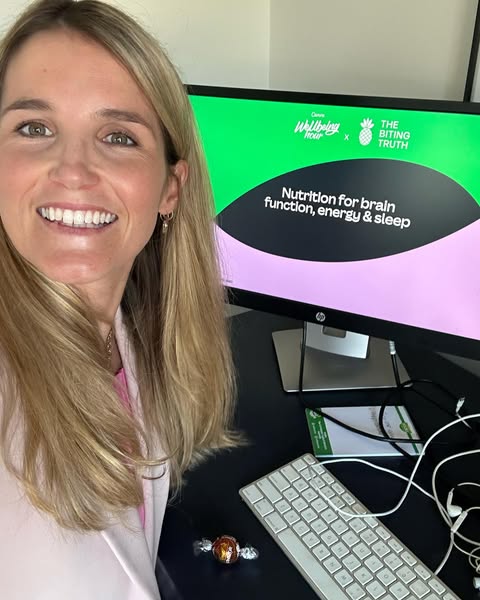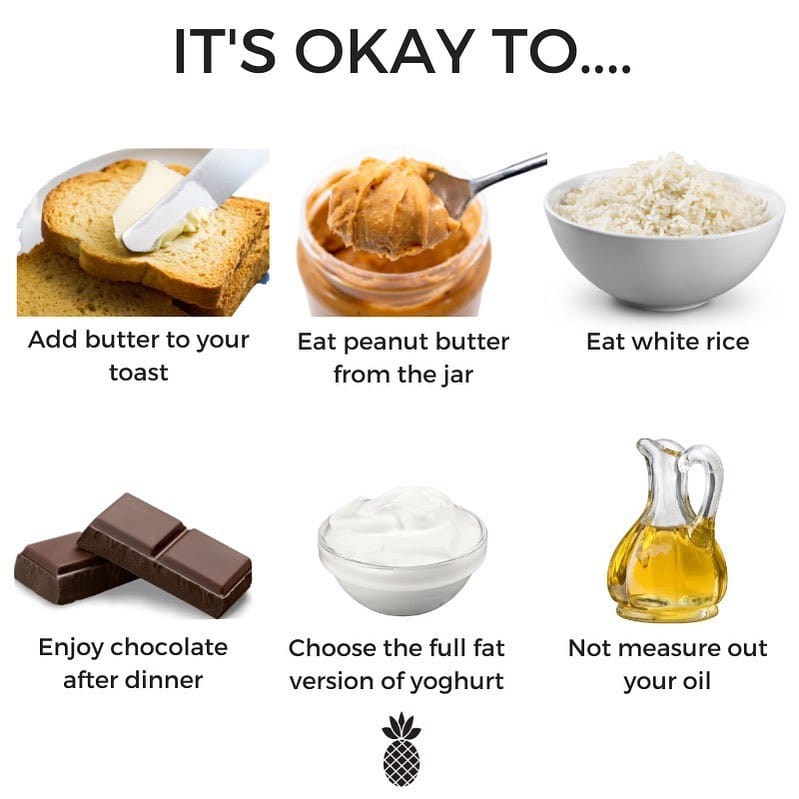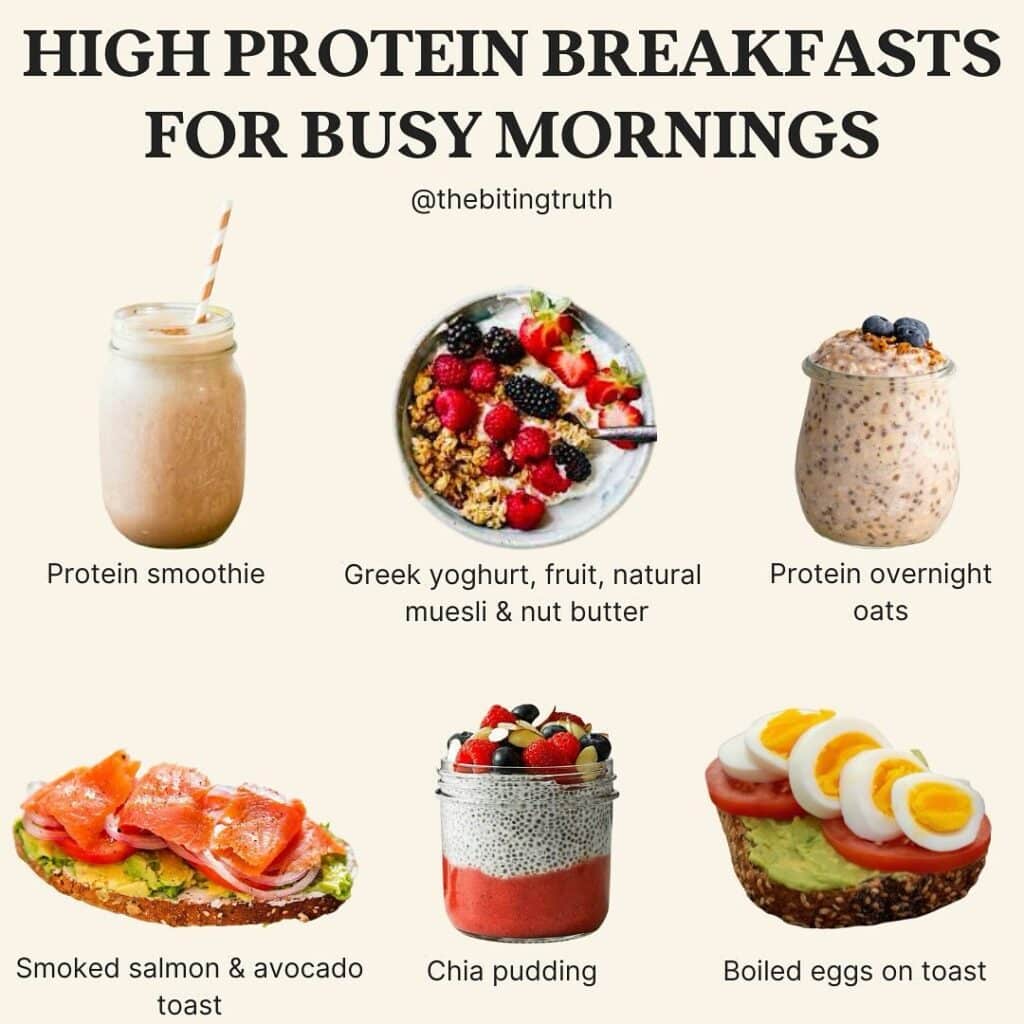Have you stepped on the scales lately and wondered what the heck you’re doing wrong as you just can’t shift your weight despite your best intentions?
Even with healthy eating habits and regular exercise you may be making some of the below mistakes, which are getting in your way of reaching your health goals.
Here are 10 weight loss mistakes dietitians Anna and Alex come across regularly in clinic and what you should be doing instead.
Believe it or not, one of the most common weight loss mistakes made is people not actually eating enough. Yep you heard correctly, many people trying to lose weight are eating too little.
Yes, it is important to be in a calorie deficit when trying to lose weight, however, if you go too low this can actually backfire and make it more difficult to lose weight.
If your calorie intake is too low, it can prompt the body to retain energy (aka fat), not burn it!
So the first step is to ensure you are eating enough calories throughout the day, with the right balance of proteins, fats and carbohydrates, to ensure even energy distribution and satiety. And yes, in many cases this will mean more food than you might expect. Overly restricting your calories during the day can also contribute to increased hunger later in the day which can lead to binge eating.
If weight loss is one of your goals, there is no need to cut out meals, snacks or entire food groups. We recommend working with a dietitian who can analyse your current diet and lifestyle and work with you to achieve your goals.
We totally understand it, when you want to lose weight it can seem much more appealing to go for the quick fix options available to you.
These might involve overly restrictive diets, weight loss supplements/drinks, time restricted eating, the list is endless.
It is likely you will see some initial weight loss from these types of interventions. However, the science shows us that 95% of people who go on weight loss diets fail. This is mostly because the diets they are on are not sustainable. It’s likely sooner or later you will give up on the overly restrictive diet and end up putting the weight back on. The quick weight loss you may see in the short term is most likely due to the loss of water whereas fat loss is the aim. Fat loss takes time and requires a lot of consistency and patience.
Ultimately, the goal is to focus on sustainable (and slow) weight loss that keeps the weight off in the long term in a realistic and enjoyable manner.
The focus of many weight loss diets is often protein. However, vegetables are equally as important (especially if you are increasing protein intake).
Bulking out your meals with more vegetables can be a great strategy to achieve your weight loss goals. Vegetables are low in energy and full of vitamins, minerals and fibre, which keep you feeling satisfied for longer. Eating more vegetables is also likely good for your overall gut health.
To ensure you’re getting enough veggies in, plan ahead. Adults are currently recommended to have at least 5 serves of vegetables a day. We recommend including 2-3 different vegetables with lunch and dinner. If you struggle with the taste of vegetables, try experimenting with different herbs and spices to add more flavour.
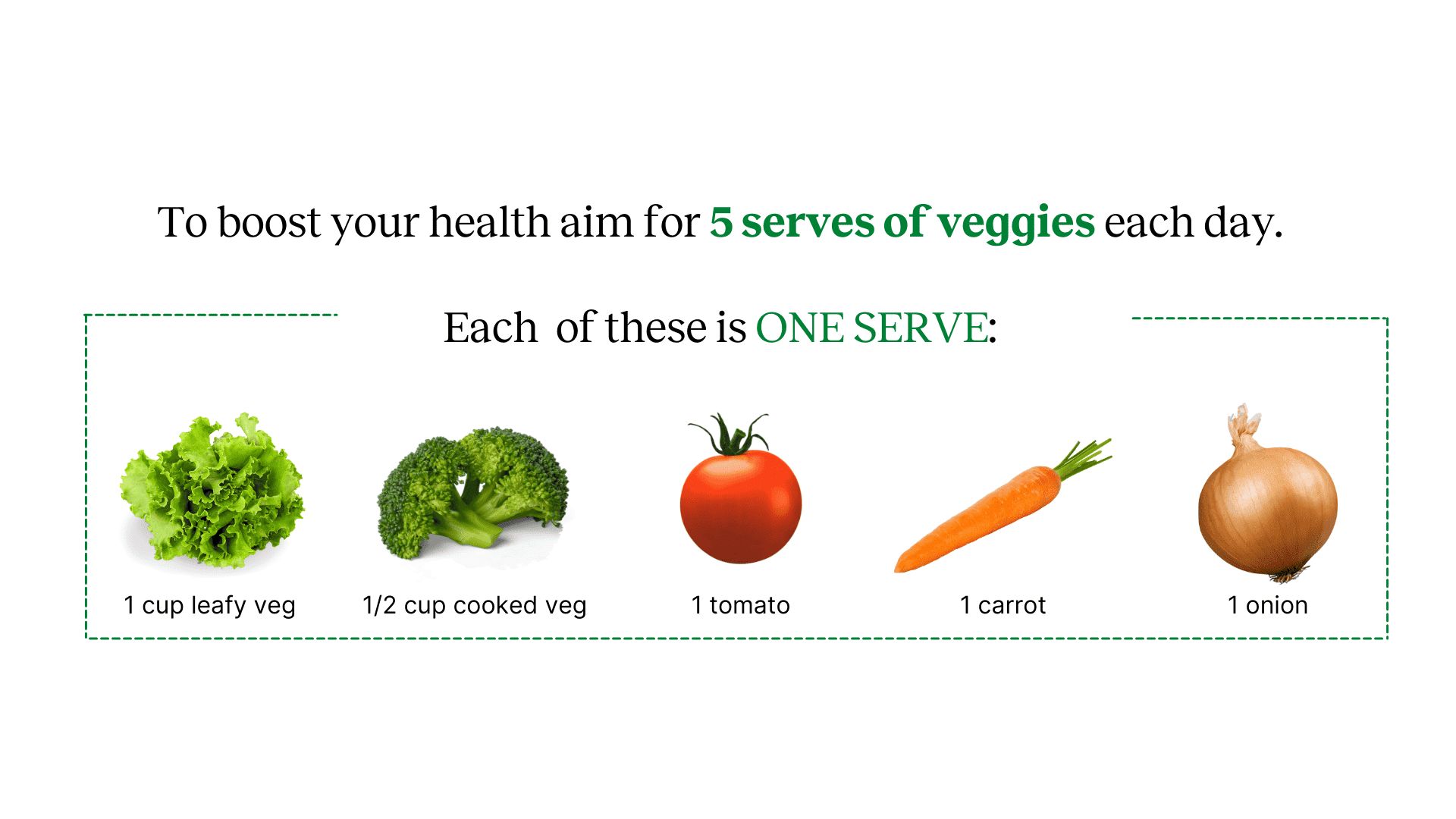
Carbohydrates often receive negative attention when it comes to weight management. But we want to clarify things once and for all… Carbs are NOT bad for you. You should definitely NOT cut all carbohydrates.
Carbohydrates are an important source of energy for your brain and body. Where carbs can become an issue with weight loss is when you might be choosing poor quality types of carbohydrates OR your portion sizes of carbohydrates might be too large (which is often the case).
Focus on choosing wholegrain carbohydrates (e.g. oats, brown rice, wholegrain bread) as these are full of fibre and B vitamins which can help stabilise your blood sugar and energy levels throughout the day.
Adults are currently recommended to have 4-6 serves of wholegrain carbs per day. One serve of carbohydrates is about ½ cup of cooked pasta or rice or 1 slice of bread for example. We recommend having 1-2 serves at each main meal to meet this recommendation.
For our weight loss clients, we will often look to cut back on carbohydrate intake (depending on your level of activity) but we do not cut out carbohydrates. Again, the goal is long term weight loss, that you can sustain.
You’ve managed to make healthy choices and exercise regularly during the week and finally, the weekend has arrived… You have brunch and dinner and drinks planned for Saturday and a lunch on Sunday too. Does this sound familiar?
Another common weight loss mistake is going overboard on the weekends. To lose weight, you need to be in an energy deficit but the amount of food and drinks consumed on the weekends often puts many people into an energy surplus (when looking at the weekly average). On top of this, being too strict during the week may increase the temptation of overeating on the weekends as you may have used all your willpower during the weekdays.
Try to remember that consistency is key. Of course enjoying yourself and being social on weekends is very important, but keep an eye on your food and drink choices as it can make a significant difference.
You may be making some great dietary choices but if you are going overboard on alcohol then it will be difficult for you to lose weight.
Whilst drinking alcohol in moderation can be okay from an overall health perspective, it’s important to remember that alcohol is high in energy, with no nutritional benefits, especially drinks like cocktails. Also, consuming a lot of alcohol often leads to food cravings, hello late night drunk pizza!
If you are looking to lose weight, cutting back or cutting out alcohol can be one of the easiest ways to achieve this.
It’s 3pm, you’re feeling lethargic and right about now something sweet from the pantry seems really appealing. It starts off with a handful of nuts then a couple of biccies, maybe a few squares of choccie… Sound familiar?
Sometimes these afternoon munchies result from boredom or a bit of a habit rather than actual hunger. Try going for a 15 minute walk or keeping busy away from the kitchen around the 3pm mark if you think it might be a habit.
Another reason you may experience these afternoon cravings could be because of inadequate intake earlier in the day. If you find that you are still hungry after a walk, take a moment to consider whether you are having balanced meals and/or snacks earlier in the day, especially breakfast in the morning.
If you still find that you’re hungry in the afternoon, try to have some healthy snacks on hand so that you don’t turn to unhealthy options. For example, keep a couple of small yoghurt tubs in the fridge or some cut up veggie sticks that you can enjoy with some hummus. Most importantly, pick a snack that you enjoy eating.
Grazing occurs when you continuously eat throughout the day with no real set times for meals and snacks. Sometimes you may not even be aware that you are nibbling or having mouthfuls of food here and there. By the end of the day, you may have consumed a lot of energy without realising.
To reduce the occurrence of grazing, we generally recommend aiming for 3 main meals and 1-3 snacks during the day. Try to allocating rough times in the day that you will eat your meals and snacks and try to eat these mindfully, sitting down without distractions.
Sleep and weight are closely linked. Your body makes leptin and ghrelin (your satiety and hunger hormones) while you sleep, so if you don’t get enough, you’ll be hungrier the next day. Sleep deprivation is also stressful on the body which can lead to inflammation.
Combined with feeling tired, it is more likely that you may overeat and opt for more energy-dense foods.
Aim for 7-9 hours sleep every night if you can! If you want to try some foods that can actually help improve sleep check out our podcast episode on Foods to boost sleep here.
For weight loss to be sustainable, the method needs to suit your lifestyle and be enjoyable. There are many ways to lose weight!
Picking strategies that suit your preferences and lifestyle will help you enjoy the process. The more you enjoy the journey, the more likely you will stick with it and see results.
For example, if chocolate is your favourite food then eliminating chocolate is going to be difficult and unviable for you. Instead of having the entire block, having a row of chocolate every second night may work better for you. Working with a health professional such as a dietitian who can make you a tailored plan or find strategies that work for you is important and can make all the difference!
There’s no quick fix for weight loss. Those who are successful at losing weight and keeping it off long-term find a way of eating they can keep up with every day. Eat more, not less—but of the right foods. Fill your plate with metabolism-revving fiber and protein in the form of fruits, vegetables, whole grains, lean meats and plant-based proteins, fish, nuts and seeds.
A calorie deficit is important and tracking calories may be helpful but don’t let it be the end-all-be-all.
Finally, don’t be afraid to ask for help! Reach out to a dietitian who can help you create healthy habits and stay accountable to your goals. You can book in with one of our accredited practising dietitians here.
—
Notes
